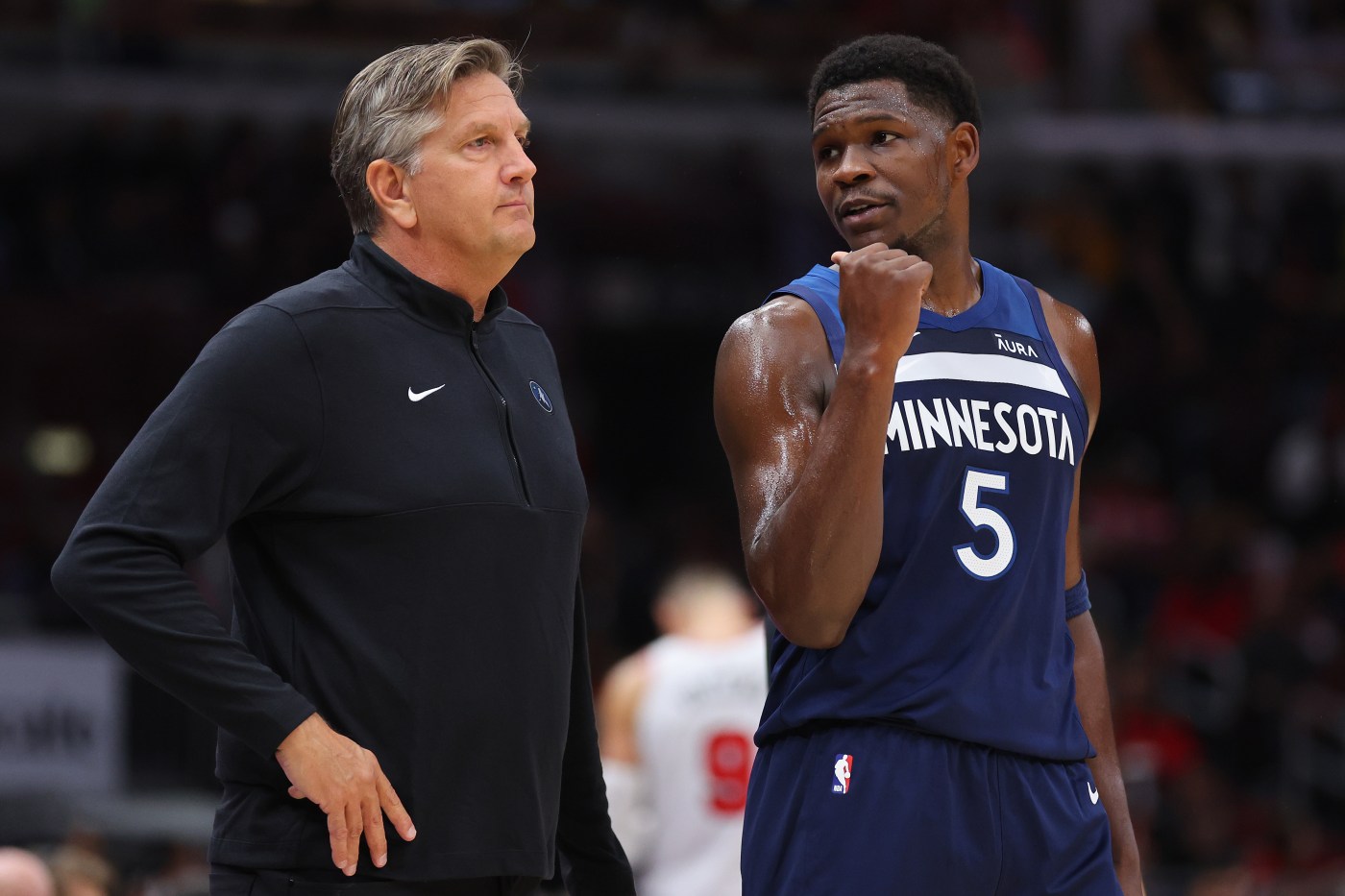
Clutch-time play still a work in progress for Timberwolves guard Anthony Edwards
Watching Anthony Edwards and Jayson Tatum during Wednesday’s Timberwolves game in Boston was a show of contrast and progression.
The contrast was the ways in which Edwards and Tatum attacked. Edwards repeatedly dribbled out clock before settling for a tough jumper. That was if he wasn’t double-teamed late in the shot clock, which often forced Minnesota into a low-percentage, one-pass-and-shoot situation or a turnover.
In the fourth quarter and overtime, Edwards went 1 for 7 from the field with three turnovers and was most liable for the late-game collapse that cost the Timberwolves what would have been an impressive road victory on the second half of a back to back.
Comparatively, Tatum did everything right. The Celtics’ star wing scored 26 points over the game’s final 13 minutes, all while committing zero turnovers. He attacked with conviction, whether that was muscling through Jaden McDaniels for a layup or blowing past Naz Reid and Karl-Anthony Towns on switches.
Tatum didn’t have any assists, but a number of his passes were to a player who had an assist on the ensuing pass. And, perhaps on the key play of the game for Boston in the final five minutes of regulation, when Al Horford buried a corner triple to trim the Celtics’ deficit from nine points to six, it was Tatum who set a screen to get Horford open.
Tatum’s performance was a prime example of a star player striking the perfect balance of aggression and unselfishness. He was aggressive when it made sense to be, and sometimes used his aggression to generate good shots for others. And when the ball wasn’t in his hands, he found other ways to contribute to good offense.
That’s the way Minnesota continuously battles to get Edwards to play when the game is at its climax. There are times when he reaches that level, but the status quo with the game on the line still seems to be a lot of dribbling leading to difficult shot attempts, either for himself or his teammates.
“This is all part of the growth curve. All part of learning. I think you can’t be wired to score in these moments. You’ve got to be wired to make the right play,” Timberwolves coach Chris Finch told reporters. “They’re going to load up against you. You can’t bleed the clock unnecessarily, because when they do come and trap you, you need time at the end to move it. These are all things that we’re harping on.”
The Timberwolves have been a fairly successful clutch-time team this season. Clutch time is defined as the final five minutes of regulation or overtime when the margin is within five points. But when Edwards is on the floor, the Wolves are being outscored by 3.1 points per 100 possessions in such situations. In contrast, Minnesota is outscoring opponents by 15.5 points per 100 clutch-time possessions when Mike Conley is in the game, which he was not om Wednesday night.
Now, at this point in the season, one epic collapse such as the Boston game can heavily sway those numbers. But it’s worth noting Minnesota closed a pair of games very effectively, against Charlotte and Utah, when Edwards was out of the lineup.
That’s not ideal for your best player. But it’s also understandable when your best player is 22 years old.
Tatum is now 25 years old. And, frankly, he hasn’t always been good in late-game situations. The Celtics’ late-game ineptitude got them bounced in the late stages of each of the past three postseasons. Tatum has learned and grown from those experiences.
Minnesota has the advantage of relying on Conley at the moment. Finch has previously acknowledged putting the ball in Conley’s hands and allowing him to generate looks for Edwards.
The expectation is that, in time, Edwards will ascend on a similar arc as Tatum. Such development is often sparked by bad experiences — usually in the postseason. The biggest player leaps are born from devastating defeats.
The Timberwolves must hope these regular-season blemishes hurt enough to pound important messages home. Because the reality is that while 25-year-old Anthony Edwards may be best equipped to experience sustainable success in pressure-packed situations, 22-year-old Anthony Edwards is the one who is playing with a championship-caliber roster in the here and now.
Related Articles
Late-game execution spoils Timberwolves’ exemplary effort in overtime loss to Boston
The Timberwolves finally did it: They rested a player
Timberwolves dominant in win over Magic
Timberwolves will face a transformed Jalen Suggs on Tuesday
Timberwolves struggle against small ball in loss to Dallas


